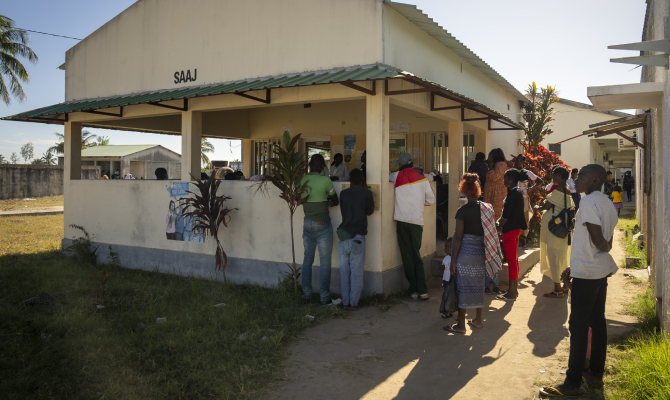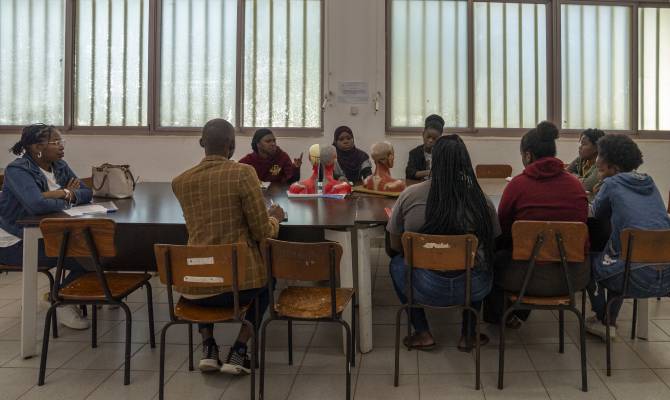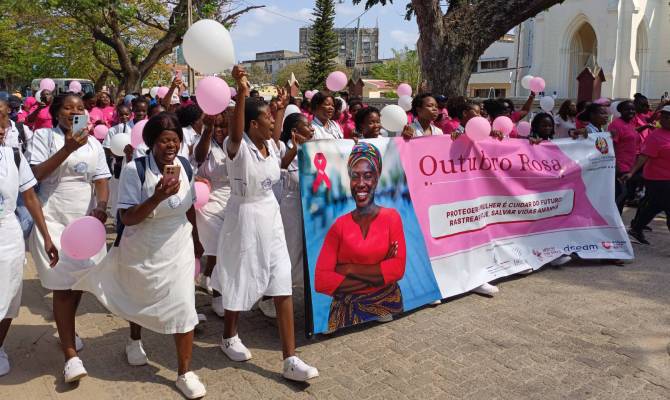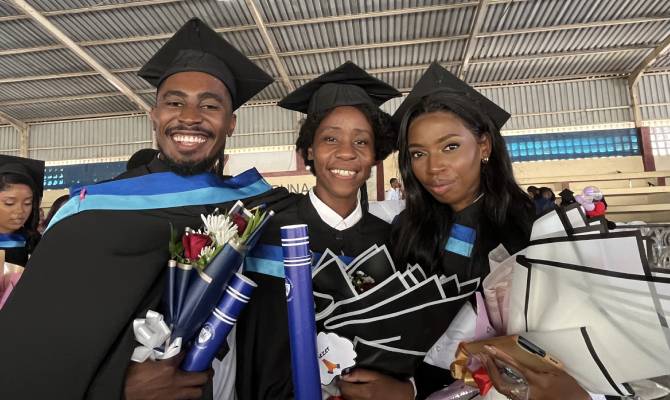Mozambique is one of the African countries with the highest HIV prevalence, with a national average of 11.5% (UNAIDS 2020). As of 2020, 2.1 million people were estimated to be living with HIV in Mozambique, with a higher prevalence among adolescent girls (ages 15-19) and young women (ages 20-24).
Youth and adolescents were the direct recipients of an intervention planned to improve access to HIV services in 9 SAAJs (Serviço Amigo do Adolescente e Jovem) in Beira city and Nhamatanda district. Implemented by CUAMM with the support from Manos Unidas, the intervention aimed to educate young people/adolescents (ages 10-24) about safe sexual behaviours, encourage (voluntary) HIV testing, improve access to and quality of HIV healthcare services for adolescents/youth, and ensure adherence to ART, particularly for pregnant and breastfeeding HIV-positive women.
To enhance access to sexual and reproductive health services (SRH) and reduce HIV incidence among adolescents/youth, CUAMM has used an approach based on integrating different levels of intervention, namely health units (SAAJs) and communities, creating links between counselling, testing, and treatment and engaging local peer-to-peer associations and community based organizations (CBOs).
«So many people around us are widely considered crazy and excluded from the community with severe consequences on their life. What is not known is that people are not crazy, they are just going through something difficult and may not be able to cope with it. That is why mental health is important and caring, accepting and supporting the suffering others are experiencing can help them healing» Marina Castaneja – activist from Kuplumussana Association.
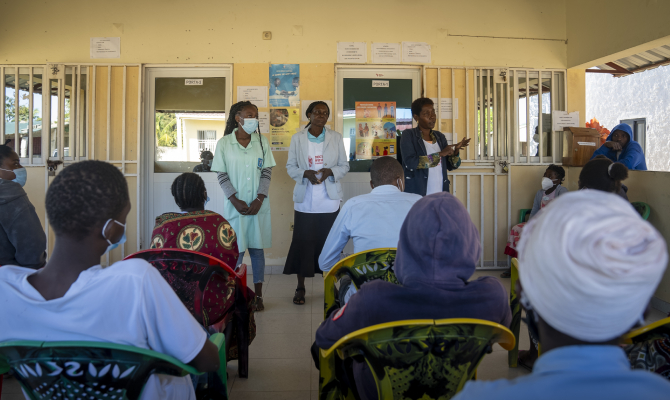
The intervention’s objectives were designed to meet the programmatic priorities and targets established by the Government of Mozambique in the National HIV Response Plan. The activities, carried out in collaboration with local authorities both at provincial and district level, showed positive results. In the last 13 months alone, a total of 44.858 HIV tests were performed allowing to detect 404 new HIV positive cases. Despite an early 28% of people in TARV who abandoned the follow-up, 98% of them returned to the treatment thanks to the collaboration with CBOs and peer-to-peer activities.
In addition to the three components previously integrated to the approach, namely involvement of clinical officers, participation of CBOs and provision of mental health and psychosocial support (MHPSS) for patients in TARV, the main activities implemented focused on:
1) Strengthening access to and quality of HIV services (SAAJs) in the Beira and Nhamatanda Districts,
2) Increasing HIV and SRH knowledge and awareness among adolescents in the target area,
3) Improving the Health Information System.
The project did not fail to include trainings as a tool to enhance competencies among professionals, thus ensure the sustainability of the intervention over time. Health professionals/managers got involved in training sessions to foster their capacities in case diagnosis and management as well as data collection and analysis skills.
Despite the country in the last years made progress on HIV and AIDS (UNAIDS) 95-95-95 goals, with 82% of PLHIV aware of their status, gaps remain among adolescents. Estimates suggest that Mozambique has 98,328 new HIV infections annually, and 28.7%, (28,220) are among adolescent girls and young women compared to 11.4% (11,209) among men in the same age group. Within Mozambique, the Province of Sofala is one of the worst in the country for HIV prevalence, which stands at 16,3 % (IMASIDA).
«We have to keep working with the youth because they are extremely fragile. Adolescents are highly sensitive to peer values and opinions, being accepted is in fact a key component of the phase they are living. Due to stigmatization and discrimination related to HIV, by receiving a positive diagnosis young people can experience panic and depression. We have to support them and help them cope with the diagnosis not only from a medical perspective but also psychological» said Hamilton Cardoso – CUAMM psychologist.
Since 2014, Doctors with Africa CUAMM has been implementing a patient-centered HIV case management system, with a focus on supporting adherence of HIV+ pregnant adolescent girls and tracking defaulter patients. Moreover, a new service of MHPSS was introduced lately in order to respond to the negative consequences on the mental wellbeing of adolescent and young people due to the impact of disasters and emergencies like Cyclone IDAI and the Covid Pandemics. Indeed, in a study conducted with more than 2,000 adolescents and young adults in Beira, CUAMM found that approximately 54 were positive at least at one screening tool for anxiety, depression, PTSD (Post Traumatic Stress Disorder) and drugs-alcohol abuse.

